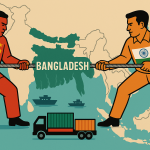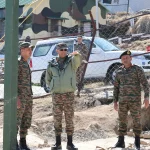In a significant blow to Pakistan’s internal security apparatus, a Pakistan Army officer, Syed Ahmed, has been abducted by the Tehreek-e-Taliban Pakistan (TTP) while traveling to Lahore. The officer, who appeared in a video released by the group, confirmed that he was taken from the vicinity of the China-Pakistan Economic Corridor (CPEC) route and is currently being held at an undisclosed “safe location.”
In the video, Syed Ahmed stated that he is being treated well, receiving food, water, and prayer facilities regularly. Despite expressing relative satisfaction with his treatment, he made a direct appeal to the Pakistani government, urging it to fulfill the TTP’s demands to ensure his safe return. The exact nature of the group’s demands has not been disclosed publicly.
This development is a stark reminder of the persistent threat posed by the TTP, an umbrella organization of Islamist militant groups based along the Afghan-Pakistani border. Despite Islamabad’s public denial of ties to the Afghan Taliban and its supposed disavowal of extremist groups, the TTP continues to assert its presence through increasingly bold actions—including direct confrontations with state institutions.
The incident comes at a time when Pakistan is grappling with a broader insurgency wave. The TTP has been linked to numerous attacks, including the devastating 2009 Lahore bombing and a series of cross-border strikes. The group’s roots, some of which trace back to elements allegedly once fostered by Pakistan’s own security agencies, complicate efforts at dismantling their network.
Experts believe that the abduction of a military officer by the TTP could mark a significant escalation in the group’s tactics and propaganda strategy. It also raises uncomfortable questions about Pakistan’s counter-terrorism strategy, particularly the effectiveness and coherence of its intelligence operations along critical infrastructure zones like CPEC.
As pressure mounts, the Pakistani government faces a difficult decision: negotiate with the TTP—possibly legitimizing its actions—or pursue a military solution that could further destabilize already volatile regions. In either case, this incident underscores the urgent need for a re-evaluation of Pakistan’s internal security policies and its approach to dealing with militant groups once considered strategic assets.













